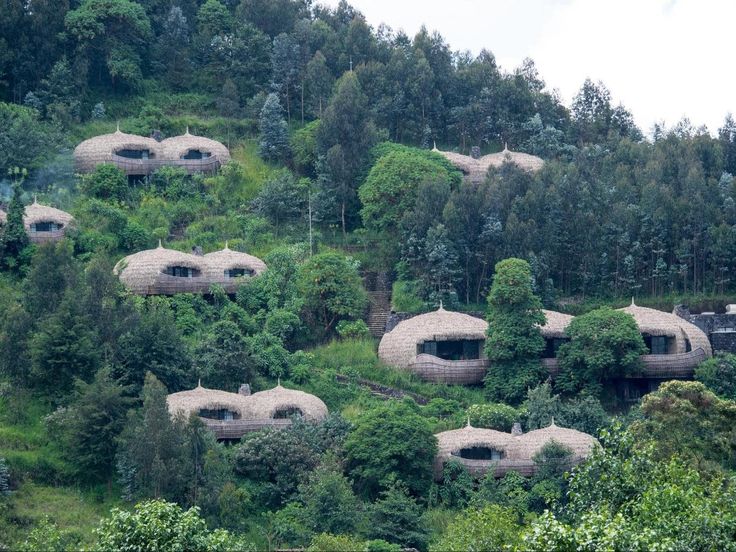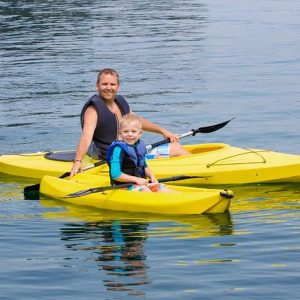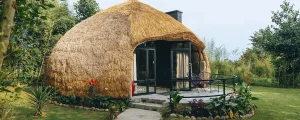Rwanda, the Land of a Thousand Hills, has emerged as one of Africa’s leading eco-tourism destinations. Known for its conservation success stories, pristine national parks, and rare wildlife such as mountain gorillas, Rwanda has invested heavily in sustainable travel. Eco lodges in Rwanda are central to this effort, offering travelers comfort while ensuring minimal environmental impact and maximum benefit to local communities. Top Eco Lodges in Rwanda
Whether you are planning a gorilla trekking adventure in Volcanoes National Park, a safari in Akagera National Park, or a primate expedition in Nyungwe Forest, Rwanda’s eco lodges provide the perfect balance between luxury and sustainability. This guide explores the top eco lodges in Rwanda while answering the most common questions travelers search for when planning their eco-friendly stay.
What are the best eco lodges in Rwanda?
Rwanda is home to some of Africa’s most iconic eco lodges, each with unique features:
- Bisate Lodge (Volcanoes National Park) – A luxurious eco lodge famous for its reforestation project and gorilla conservation efforts. Guests stay in beautifully designed forest villas that blend into the volcanic landscape.
- Sabyinyo Silverback Lodge (near Volcanoes National Park) – Community-owned, with profits funding local development initiatives while providing easy access to gorilla trekking trails.
- Virunga Lodge (Volcanoes National Park) – Known for its panoramic views of the Virunga Volcanoes and twin lakes, it operates fully on solar power and water conservation systems.
- Magashi Camp (Akagera National Park) – A luxury eco-safari lodge supporting anti-poaching units and wildlife protection while offering game drives to see the Big Five.
- Nyungwe House (Nyungwe National Park) – Located on a working tea plantation beside ancient rainforest, this eco lodge supports primate research and sustainable agriculture.
- Ruzizi Tented Lodge (Akagera National Park) – A solar-powered eco lodge on Lake Ihema, designed to blend naturally into the environment and run by African Parks.
These lodges not only offer exceptional comfort but also set the standard for conservation-led tourism in Rwanda.
Which eco lodges are near Volcanoes National Park for gorilla trekking?
Volcanoes National Park is Rwanda’s most visited destination, attracting travelers for the once-in-a-lifetime experience of trekking mountain gorillas. Top eco lodges near the park include:
- Bisate Lodge – Located just outside the park, Bisate is globally recognized for its eco-friendly architecture and extensive reforestation efforts that restore gorilla habitat.
- Sabyinyo Silverback Lodge – Just minutes from the park headquarters, it is ideal for early morning treks. Its community ownership ensures that tourism revenue directly benefits local villages.
- Virunga Lodge – Situated on a ridge with views of the volcanoes, Virunga Lodge combines luxury with sustainability, offering guests easy access to gorilla trekking.
These lodges ensure that your gorilla trekking adventure is both comfortable and sustainable.
Are there eco lodges in Akagera National Park?
Akagera National Park, Rwanda’s premier safari destination, is home to several eco lodges:
- Magashi Camp – Operated by Wilderness, it focuses on low-impact luxury and supports wildlife conservation in partnership with African Parks.
- Ruzizi Tented Lodge – A solar-powered lodge built with natural materials, offering lakeside views and eco-conscious safari experiences.
- Karenge Bush Camp – A seasonal eco camp with minimal environmental footprint, designed to be dismantled without leaving traces on the land.
These eco lodges allow visitors to explore Akagera’s diverse landscapes and wildlife while supporting conservation and community engagement.
What makes a lodge eco-friendly in Rwanda?
A lodge is considered eco-friendly in Rwanda if it prioritizes sustainability in every aspect of its operation. Common eco practices include:
- Use of Renewable Energy: Many lodges run on solar power to reduce carbon emissions.
- Water Conservation: Rainwater harvesting, low-flow showers, and eco-toilets are widely used.
- Eco-conscious Construction: Lodges are built with natural materials that blend with the environment.
- Waste Management: Recycling, composting, and minimizing single-use plastics are standard practices.
- Community Support: Eco lodges employ locals, fund schools and health projects, and promote cultural tourism.
- Wildlife Protection: Many lodges contribute directly to conservation initiatives, such as anti-poaching patrols and habitat restoration.
These practices ensure that tourism strengthens Rwanda’s environment and communities rather than harming them.
How much does it cost to stay in an eco lodge in Rwanda?
The cost of eco lodges in Rwanda varies depending on luxury level and location:
- Budget-Friendly Eco Lodges: $70–$150 per night (simple but eco-conscious accommodations, often community-run).
- Mid-Range Eco Lodges: $200–$400 per night (comfortable lodges with sustainable operations and guided activities).
- Luxury Eco Lodges: $600–$2,000 per night (all-inclusive luxury villas and tented lodges near gorilla trekking or safari parks).
Eco lodges near Volcanoes National Park tend to be more expensive due to the exclusivity of gorilla trekking, while lodges in Akagera and Nyungwe offer a broader range of pricing.
Do eco lodges in Rwanda support local communities?
Yes, community support is a cornerstone of eco lodges in Rwanda. Examples include:
- Sabyinyo Silverback Lodge – Owned by a community trust that uses profits to fund local schools, health centers, and infrastructure.
- Bisate Lodge – Employs locals and supports education and health projects in nearby villages.
- Ruzizi Tented Lodge – Employs staff from surrounding communities and promotes local crafts.
By staying in these lodges, travelers contribute directly to the socio-economic growth of Rwandan communities.
Which eco lodges in Rwanda use solar power?
Several eco lodges in Rwanda rely entirely or partially on solar energy, including:
- Virunga Lodge – Fully powered by solar panels.
- Ruzizi Tented Lodge – Operates with solar systems for lighting and hot water.
- Karenge Bush Camp – Runs entirely on solar and is designed to leave no permanent structures.
This reliance on renewable energy reduces carbon footprints and ensures environmentally responsible travel.
What wildlife can you see from eco lodges in Rwanda?
Eco lodges in Rwanda are strategically located in biodiversity hotspots, meaning wildlife viewing often begins at your doorstep:
- Volcanoes National Park Lodges: Guests may see golden monkeys, forest birds, and occasionally gorillas nearby.
- Akagera National Park Lodges: Expect views of elephants, giraffes, zebras, hippos, lions, and over 500 bird species.
- Nyungwe Lodges: Primates such as chimpanzees, colobus monkeys, and L’Hoest’s monkeys, along with countless birds.
Staying in eco lodges allows travelers to immerse themselves in Rwanda’s wildlife-rich landscapes.
Are eco lodges in Rwanda suitable for families?
Yes, many eco lodges in Rwanda welcome families, offering family-sized cottages and educational activities for children. While gorilla trekking has an age restriction of 15 and above, families can enjoy nature walks, cultural experiences, birdwatching, and safari drives together. Lodges like Magashi Camp and Nyungwe House are especially family-friendly.
Do eco lodges in Rwanda offer cultural experiences?
Yes, cultural immersion is an integral part of eco lodges in Rwanda. Guests can enjoy:
- Traditional dance and music performances.
- Visits to local villages, farms, and schools.
- Cooking lessons with Rwandan recipes.
- Craft workshops showcasing basket weaving and pottery.
Eco lodges ensure that cultural tourism benefits local communities while giving guests authentic experiences.
Are eco lodges in Rwanda safe for international travelers?
Eco lodges in Rwanda maintain high safety standards. They provide 24-hour staff presence, secure accommodations, purified water, and professional guides. Rwanda itself is regarded as one of the safest countries in Africa for travelers, with well-protected national parks and strong conservation management.
What is the difference between an eco lodge and a safari lodge in Rwanda?
The main difference lies in their approach to sustainability:
- Eco Lodges – Designed to minimize environmental impact, often powered by renewable energy, built with natural materials, and actively involved in conservation.
- Safari Lodges – Focus more on game-viewing luxury and convenience. Some safari lodges are transitioning to eco practices, but not all qualify as fully eco-friendly.
In Rwanda, many safari lodges are adopting eco principles, but dedicated eco lodges lead in sustainability.
Which eco lodges in Rwanda are best for gorilla trekking?
The top eco lodges for gorilla trekking include:
- Bisate Lodge – Known worldwide for its gorilla conservation initiatives.
- Sabyinyo Silverback Lodge – Ideal for travelers seeking a community-based stay close to trekking routes.
- Virunga Lodge – Offers stunning views of Volcanoes National Park and easy access to gorilla permits.
These lodges combine comfort with sustainability, making them the best bases for gorilla trekking in Rwanda.
Are there eco lodges in Rwanda with views of the Virunga Volcanoes?
Yes, Virunga Lodge is the most famous eco lodge offering sweeping views of the Virunga Volcanoes and twin lakes. Bisate Lodge also provides vistas of the volcanic landscape, allowing guests to immerse themselves in Rwanda’s dramatic scenery.
How do eco lodges in Rwanda contribute to conservation?
Eco lodges contribute to conservation in several ways:
- Funding anti-poaching patrols and wildlife monitoring.
- Supporting reforestation projects, such as Bisate Lodge’s tree-planting initiatives.
- Promoting responsible tourism that limits environmental impact.
- Partnering with conservation organizations like African Parks and the Dian Fossey Gorilla Fund.
Through these efforts, eco lodges ensure that tourism protects Rwanda’s natural heritage.
Conclusion
Eco lodges in Rwanda are at the forefront of sustainable tourism in Africa. From gorilla trekking bases in Volcanoes National Park to safari lodges in Akagera and primate lodges in Nyungwe, these accommodations combine comfort, conservation, and community empowerment. By staying in Rwanda’s eco lodges, travelers actively support reforestation, wildlife protection, and rural development while experiencing some of the most breathtaking landscapes on earth.
Choosing an eco lodge in Rwanda means experiencing nature responsibly while contributing to the country’s conservation success story.




